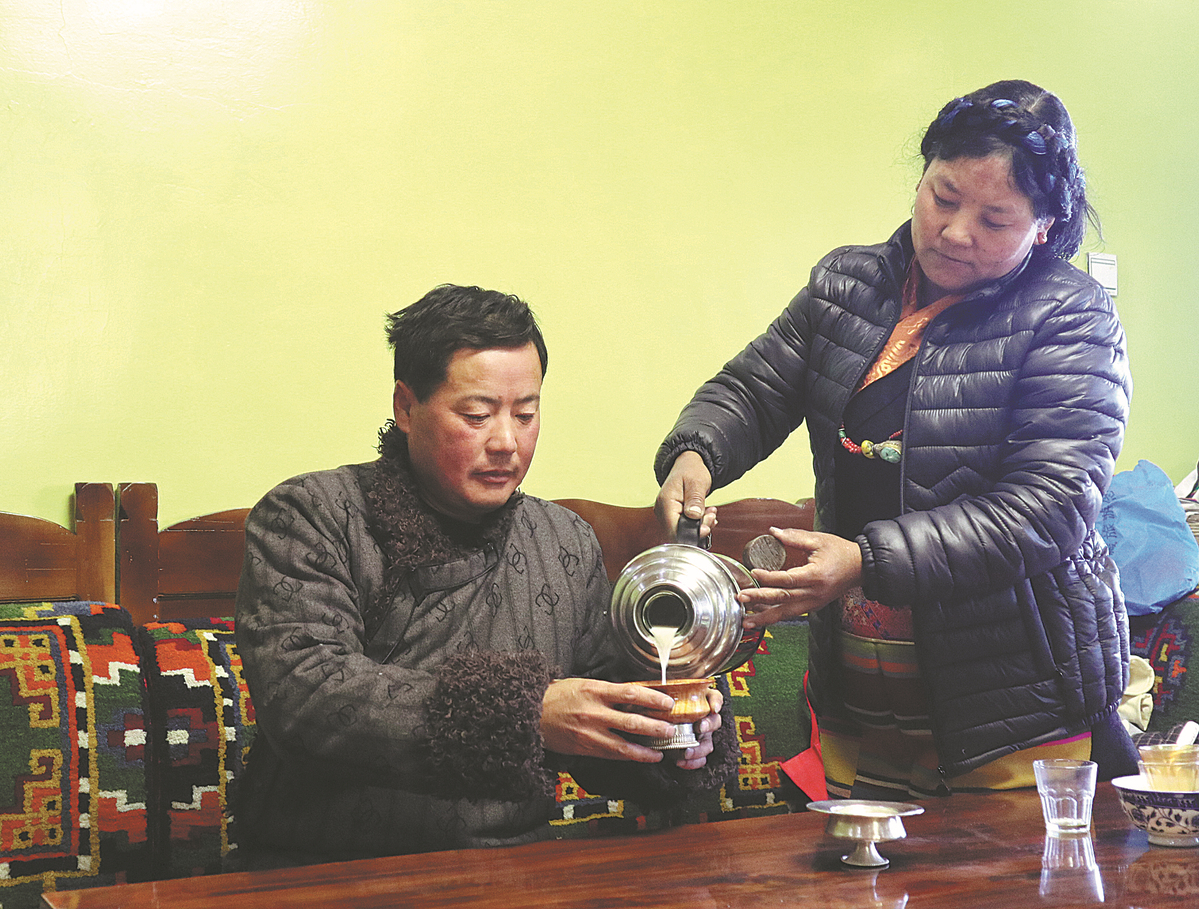Family in Tibet living proof of ethnic harmony
By PALDEN NYIMA in Lhasa | China Daily | Updated: 2022-03-17 09:13

Near the meeting of the Nyangchu and Thanchu rivers in Shigatse, Tibet autonomous region, Chakar village is an altogether fitting home for a married couple of different ethnicities.
The woman, whose name is Yudron, is a native of Chakar, which is located in Norchung township in Shigatse's Panam county. Her husband, Li Fuhua, is from Hualong county in Qinghai province, more than 2,000 kilometers away. They merged their lives here nearly two decades ago.
Like the confluence of the two rivers, their union-she is Tibetan, he is Han-mirrors the harmony between ethnic groups commonly found in the autonomous region.
In the early 2000s, Li came to work at a construction site near Yudron's home. They soon fell in love.
"My parents worried at first that our marriage would not last because he was from so far away, and our cultural backgrounds were quite different," Yudron said. "But after living together for years, we have learned to be inclusive and respect each other."
They married in 2004 despite the initial objections of Yudron's parents. "I persuaded them by promising that we would never leave each other," she said.
Li said that at first, he had some difficulty living in a Tibetan village. He had to adjust to a new diet, unfamiliar social customs and a different language.
"As time has passed, these things are no longer barriers. Now, I can chat with the other villagers in Tibetan, and we hang out together," Li said, noting that his wife is "very supportive of my special hobbies and habits".
The couple has worked to make a better life after their marriage. Yudron runs a traditional weaving business, while Li is a traveling welder. They have two daughters.
Through talent and hard work, they have prospered. Yudron has passed on her weaving skills to more than 20 women in the village, and Li has helped train a few as welders.
After Li became a member of the village, he discovered that most Chakar residents made their livings as farmers and had just one source of income.
He made his mind up to do something about that, and not only taught some of the villagers how to weld and build walls, but also helped them find part-time construction jobs.
"Since 2005, I have been taking eight to 10 villagers every year with me on part-time jobs, and now their financial situation has greatly improved, and we've become good friends," Li said, adding that they all help each other and earn money together while working outside the village. "Now, I feel I am just like everyone else. I celebrate the Chinese Spring Festival, the Tibetan Losar New Year and other Tibetan festivals," he said.
The couple has received model of ethnic unity family awards from different regional government branches in recent years.
As their two daughters go to primary and middle schools and can speak Mandarin and Tibetan, the family is now bilingual.
Yudron and her daughters usually communicate in Tibetan, while Li tends to use Mandarin more.
Lhamo, their eldest daughter, said that the mother country is like a big family in which all ethnic groups are like brothers and sisters. "We all share a common wish, which is to make our country more prosperous. Only when the larger family is in harmony will we all have a chance to enjoy a better life," she said.























